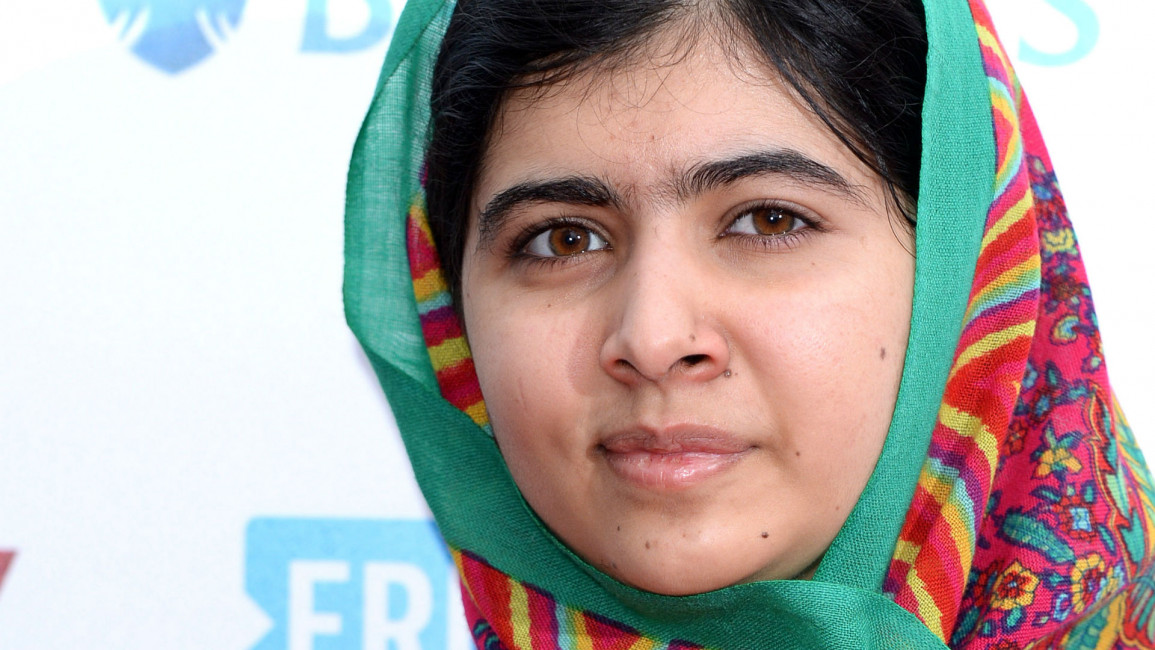Tearful Malala makes emotional first trip back to Pakistan since Taliban attack
Nobel peace laureate Malala Yousafzai returned to Pakistan Thursday, saying tearfully that it was "a dream" to come home for the first time since she was airlifted to Britain after being shot in the head by a Taliban gunman more than five years ago.
The 20-year-old was overcome with emotion as she made a televised speech from the Prime Minister's House in Islamabad, breaking down in tears as she spoke of the beauty of her native Swat valley and how she imagines the streets of Pakistan from London and New York.
"Always it has been my dream that I should go to Pakistan and there, in peace and without any fear, I can move on streets, I can meet people, I can talk to people.
"And I think that it's my old home again... so it is actually happening, and I am grateful to all of you."
She added: "I don't cry much, I don't know why today."
The activist had arrived unannounced with her parents under tight security overnight. Pakistanis awakening to the news she was back in the country flooded social media with messages of welcome - but others accused her of a conspiracy to foment dissent.
Malala is widely respected internationally as a global icon for girls' education, but opinion is divided in Pakistan, where some conservatives view her as a Western agent on a mission to shame her country.
Residents of Swat said they were happy to see her return.
"Parents who were scared in 2012 are not scared in 2018, and Malala has played a great role in this," said Shaista Hakeem, a student at Swat University, who credited her academic career to Malala's influence over families in the region.
Malala became a global symbol for human rights after a gunman boarded her school van in Swat on October 9, 2012, asked "Who is Malala?" and shot her.
The Pakistani Taliban accused her of "anti-Islamic" activities and of "smearing" the militant group in statements released after the attack.
She was treated for her injuries in the British city of Birmingham, where she also completed her schooling.
The youngest-ever winner of the Nobel Peace Prize in 2014, she has continued to be a vocal advocate for girls' education while pursuing her studies at Oxford University.
'Charged' meeting with Pakistani feminists
Later Thursday Malala met with top feminists from across Pakistan at an event organised by Oscar-winning director Sharmeen Obaid-Chinoy, who called participants two days earlier and told them to come to Islamabad - but for security reasons refused to reveal why.
"She told me, 'It'll be the highlight of your year,'" said Digital Rights Foundation founder Nighat Dad, who attended the meeting. "If Sharmeen says that, you have to go."
The room, she said, was charged. "So much power and emotion and hope. She (Malala) said 'I'm so emotional, words can't express what I'm feeling right now'. It was the same for us... I think Malala came bringing hope."
Earlier, Malala met Prime Minister Shahid Khaqan Abbasi and told the audience at her televised speech that the Malala Fund has already put more than $6 million into girls' education in the country.
Earlier this month, a school opened in Swat that was constructed and funded with part of her Nobel Prize money.
But among the messages of welcome are pockets of intense criticism from some Pakistanis, including hardline Islamists as well as members of the conservative middle class who support education for girls but object to airing the country's problems abroad.
"Dear Pakistanis! Malala is not your enemy. Your enemies were those monsters who shot her point blank on her way to school," wrote Twitter user Shahira Lashari.
Her schedule for the four-day trip is being closely guarded, with officials refusing to disclose her itinerary for security reasons.
Malala began her campaign aged just 11, when she started writing a blog - under a pseudonym - for the BBC's Urdu service in 2009 about life under the Taliban in Swat, which they took over in 2007.
Opponents were murdered, people were publicly flogged for supposed breaches of sharia law, women were banned from going to market, and girls were stopped from going to school.
But it was only after the shooting, and a subsequent near-miraculous recovery, that she became a truly global figure.
As for the militants who attacked her: the man suspected of actually firing the gun at Malala, named by officials as Ataullah Khan, has long been believed to be on the run in Afghanistan, along with Pakistani Taliban chief Mullah Fazlullah, who ordered the attack.
In 2015, it was reported that eight of 10 men who had been convicted over the attack had actually been cleared.



